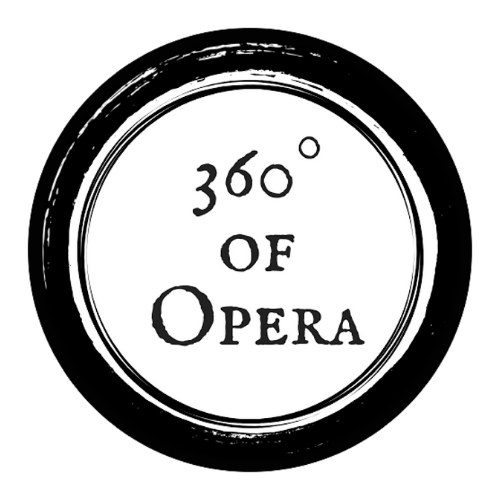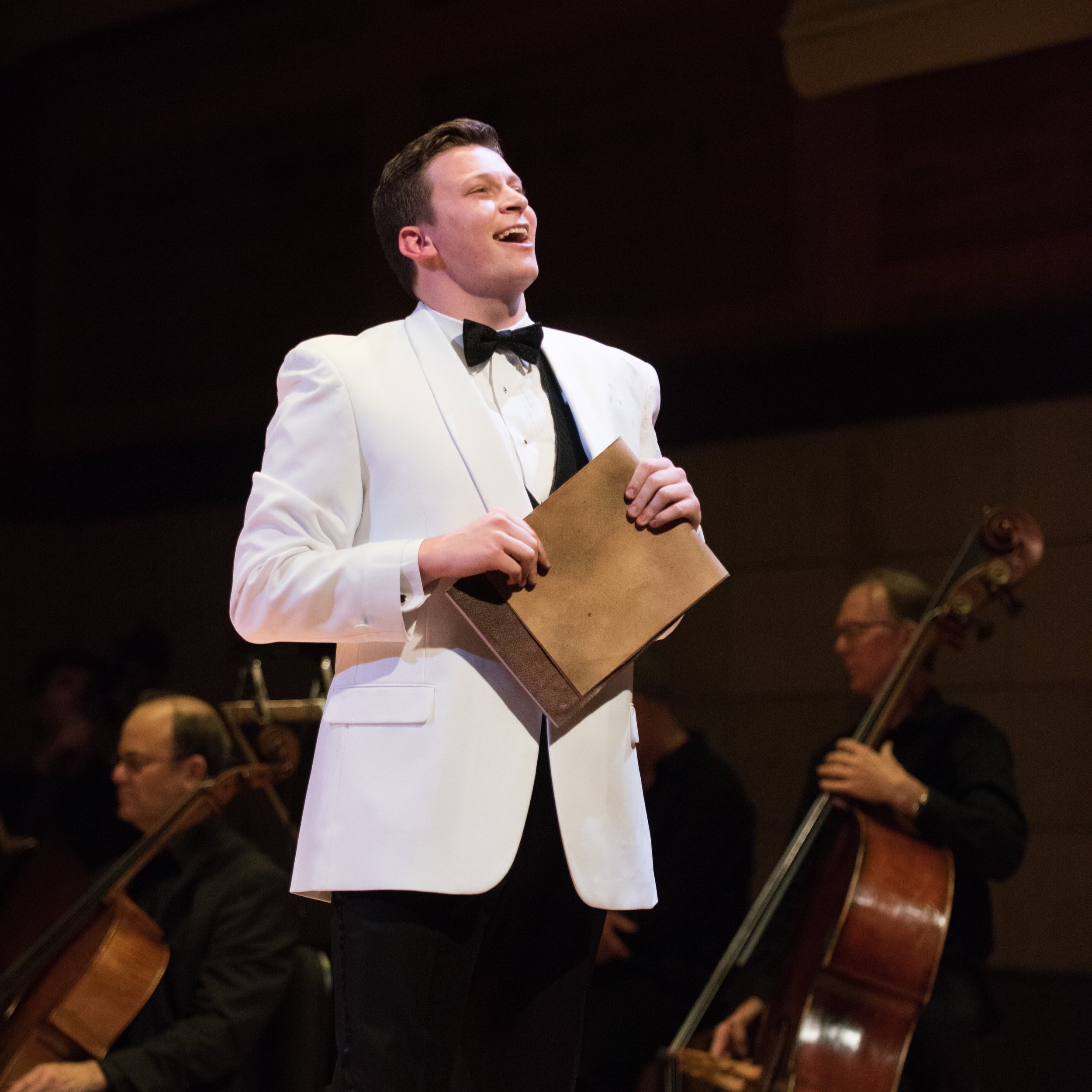Written in the Stars
Photo Credit: Kristen Loken
A #360ofOpera interview with Aryeh Nussbaum Cohen, written by Yutong Yang.
Aryeh Nussbaum Cohen hadn’t chosen opera when he arrived on Princeton’s campus in the fall of 2011. The incoming History major intended to work in public policy, maybe even go to law school.
Opera chose him several months later, on his first night at the Met. Cohen won a free ticket raffled off by the school’s Department of Music upon his sixth or seventh try. He figured it would be a fun experience; Zeffirelli’s production of La bohème ended up changing his life. Wowed by the great passion of the artists, he started to go to more operas. “I saw these people onstage portraying characters that were at once larger-than-life, but also so relatable and familiar,” Cohen recalled. “Opera at its best expresses these deep human emotions that we don’t necessarily feel or see every day. That’s what I felt that night.”
Cohen made a vow to himself that he would one day sing on this stage. He tore off the end of the ticket with “The Metropolitan Opera” printed on it, and has been carrying the stub around in his wallet every day since then. On May 13 this year, he finally made his début on the very same stage as Rosencrantz in Brett Dean’s Hamlet. It was a dream 10 years in the making. One may be tempted to call it a coincidence. But on close examination, every step he took led him to this dream destination of generations of young singers.
Photo Credit: Dario Acosta
As a kid, Cohen went to many rock concerts with his father, who greatly enjoyed classic rock groups such as the Grateful Dead. He is also part of the long legacy of opera singers who trained—and continue to perform throughout their careers—as cantors, perhaps most notably tenors such as Richard Tucker and Jan Peerce. Cohen explained, “The Jewish religious tradition is incredibly musical. Every prayer is sung, and the services are mostly just an extended communal singing experience.” He believes that much of his musicality and artistic identity were shaped by his time working as a cantor, starting when he was 13 years old. Every year for seven years, he spent the Jewish High Holidays at the East Midwood Jewish Center in Brooklyn, leading many of the services, and chanting the Torah reading. The cantor Sam Levine taught him the traditional Mi-Sinai melodies and musical modes with immense freedom. He recollected, “I was tasked with taking these traditional Jewish musical modes and scales—the type of musical scales you might hear in Klezmer—and shaping the text however I saw fit, to bring out the text and to create the most meaningful experience for the listeners and for myself.” He would later transfer these skills to his remarkable renditions of baroque music.
When it comes to discovering his voice type, Cohen has to thank the Brooklyn Youth Chorus, where he started his musical training in fifth grade. This treble choir gave him opportunities to perform classical music at Carnegie Hall and Lincoln Center; Cohen even got to sing backup for Sir Elton John at the latter’s sold-out Madison Square Garden concert at age 13 alongside his fellow choristers. When his voice dropped, he wasn’t ready to part with BYC anytime soon. So, he tried to sing the high notes that weren’t as natural anymore, and stayed after re-auditioning. “Every day since my voice dropped, I’ve been singing in this higher range, and it just strengthened over time. Today, it feels completely natural, and when I hear a song and imagine it in my head, I do so in my countertenor range,” Cohen said.
Princeton’s interdisciplinary approach allowed him to pursue certificates—the equivalent of minors—in Judaic Studies and Voice. Cohen believes that he would not have found his way to his career as an opera singer without mentors such as Gabriel Crouch, Director of Choral Activities and Senior Lecturer in Music. It was at Princeton that he learned to prepare to play characters by doing research and studying the source material in-depth. The University provided him generous funds to start studying music more seriously, including a fellowship to spend a summer in Italy researching Cavalli’s manuscripts in the Biblioteca Marciana in Venice, learning the language, seeing performances, and visiting many of the great museums. At the end of his sophomore year, Cohen received the Martin A. Dale ’53 Summer Award to pursue a project outside his regular course of study. During his Dale summer, he apprenticed with his celebrated alum, countertenor Anthony Roth Costanzo, and started to work with some great coaches and teachers for the first time. Cohen said, “My experiences that summer gave me the true confidence to take the leap and give this career a real shot. My attitude was, if I don’t try now, I’ll probably always look back and wonder what could have been. And I’m so glad that I gave it a real try!”
Photo Credit: Dario Acosta
When Cohen came out of Princeton in 2015, he’d applied to a number of master’s programs and fellowships. Though he’d made it to the finals for most, he was eventually rejected from every single one. Cohen came clean about the experience, “I was devastated, and I definitely questioned my choice to leave aside a stable career path as a Princeton-educated student who had planned on going to law school. But I was determined to prove everyone who had rejected me wrong.” Working as a tutor to pay the bills, the work ethic and sense of independence he’d cultivated at Princeton aided him in assembling his own program, tailored to his needs. And when it got tough, there was always opera. Cohen tried to see every single opera the Met did that season, some multiple times. He fondly remembered, “I came at least two evenings a week, thanks to the student rush tickets. At intermissions, I’d stand in front of the headshot wall and admire those great singers of the past and present, dreaming that I might one day make it up there.”
Things took a turn for the better when Sheri Greenawald and Mark Morash at San Francisco Opera invited him to the Merola Opera Program in 2016. It was there that Cohen got to work alongside top-tier young singers and with a slew of extraordinary coaches for the first time. After an intense and enriching summer, he entered the Metropolitan Opera Laffont Competition in 2016-17 on a whim. “I got one of the last slots available in the NY district after my teacher encouraged me to apply and to get helpful feedback from the District judges, even though I didn’t feel ready yet. I was shocked as I advanced through each round and then I was blown away to be named a winner and get special mention in The New York Times in Zachary Woolfe’s review of the Grand Finals concert,” he remembered.
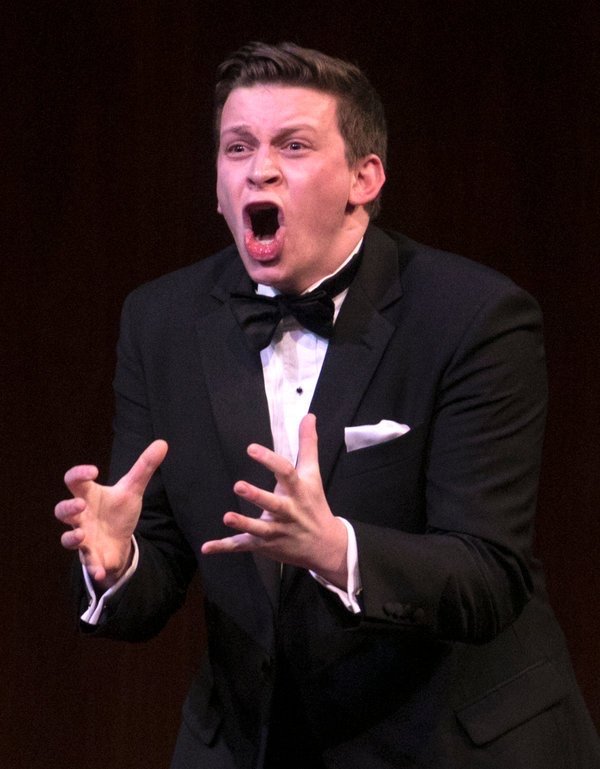
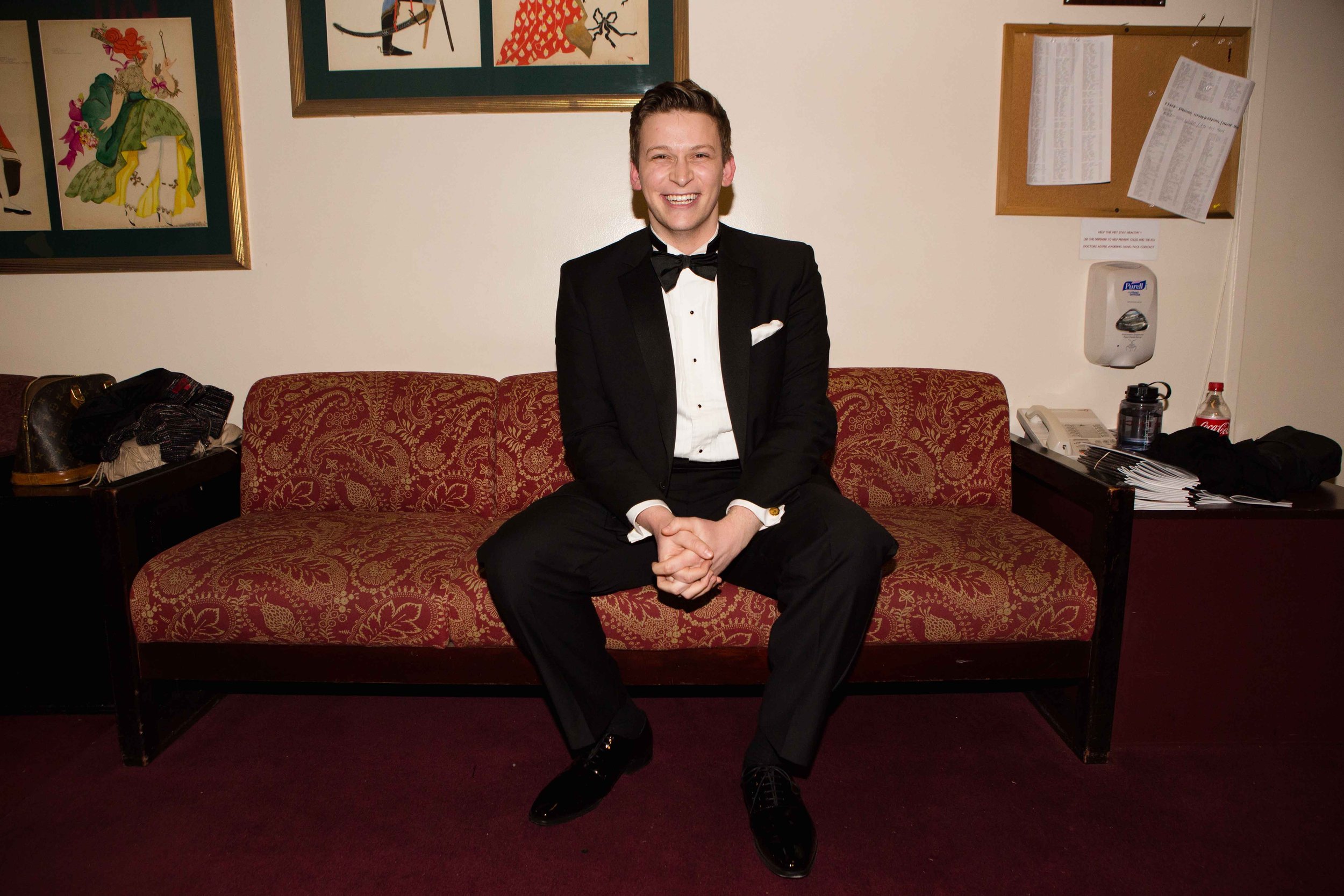
Aryeh Nussbaum Cohen during the Metropolitan Opera Competition Finals (Photo Credit: Richard Termine | NY Times)
His life changed overnight, again, thanks to the Met. Cohen went on to spend a summer at Wolf Trap Opera as a Studio Artist, before training and performing at the Houston Grand Opera Studio for one season as the very first countertenor in its history, and spending two years in the Adler Fellowship Program at San Francisco Opera. He reflected, “The training I received in these programs was invaluable—particularly because I never got a music degree, I had some things to catch up on.” These prestigious programs offered him the chance to meet and work with some of the greats in the opera industry, observing how they worked during the rehearsal process, getting advice on how to settle into the career, and more. In Cohen’s words, he learned on-the-job skills that there’s no other way to learn.
Right as Cohen was graduating from the Adler Program at the end of 2019, the pandemic broke out. He was ready to embrace his new life with open arms; what greeted him was an abrupt standstill. After a 2-month stint in Australia before vaccines were rolled out, he counted his blessings, and tried to make the most of the time in between. Now, Cohen looks forward to a full season of traveling and singing. And has the full-time singer’s life been living up to his expectations? Cohen reported, “I’m loving getting to see so many parts of the world I never even dreamed of visiting when I was a kid, and I’m learning how to adapt to the life of a traveling opera singer. You can’t really prepare for it until you’re spending 9+ months a year away from home, and it definitely has its difficult aspects.” But at the end of the day, “the thrill of being onstage makes it all worth it.”
Curtain Call after singing Handel’s Giulio Cesare in Moscow.
Listening to Cohen enthuse over his favorite roles and performance experiences is truly a delight. His curiosity shines through, and one cannot help but get excited with and for him, while feeling awed by his depth of knowledge and connection to the material. Cohen shared about playing David in Handel’s Saul, in the Barrie Kosky production at Houston Grand Opera, a few months before the pandemic began. He initially learned the role for a series of concerts around the Bay Area and at Disney Hall in Los Angeles with the Philharmonia Baroque Orchestra the previous season, and was surprised to discover that it fit his voice like a glove. “When we’re singing roles originally written for other singers, I think most of us feel fortunate when we find the ones that feel almost as if they were written for us. Getting to know the character of David—who is at once a fierce warrior, a tender lover, and a tranquility-inducing musician—has been such a treat. David is a very understated but seductive character: pretty much everyone in the opera is in love with him or in awe of him in some way.” Cohen is thrilled to reprise the role in a new production directed by Axel Ranisch next season at Komische Oper Berlin, where he’ll continue to hone the noble stillness he found in David through the rehearsal process for the Kosky production.
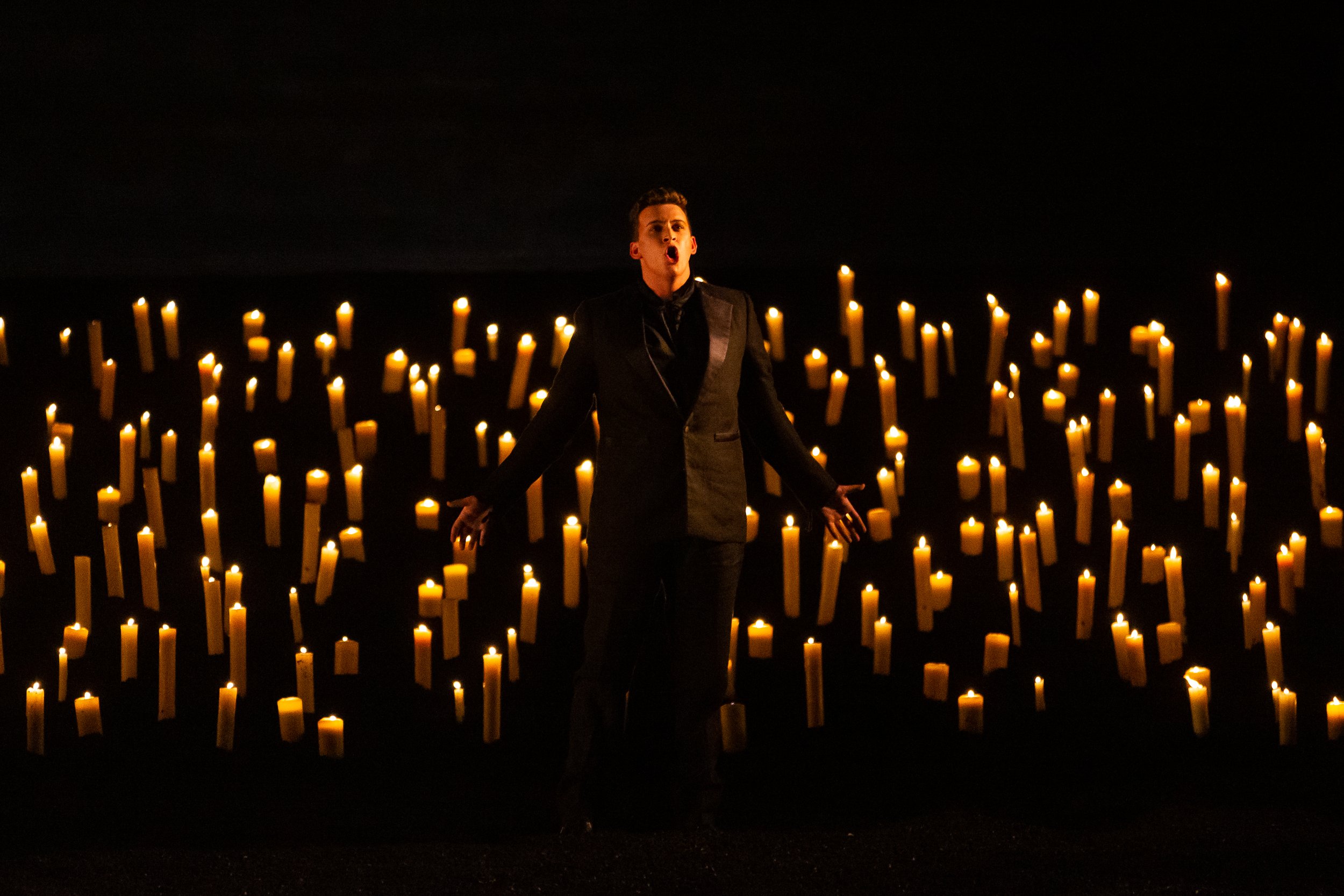
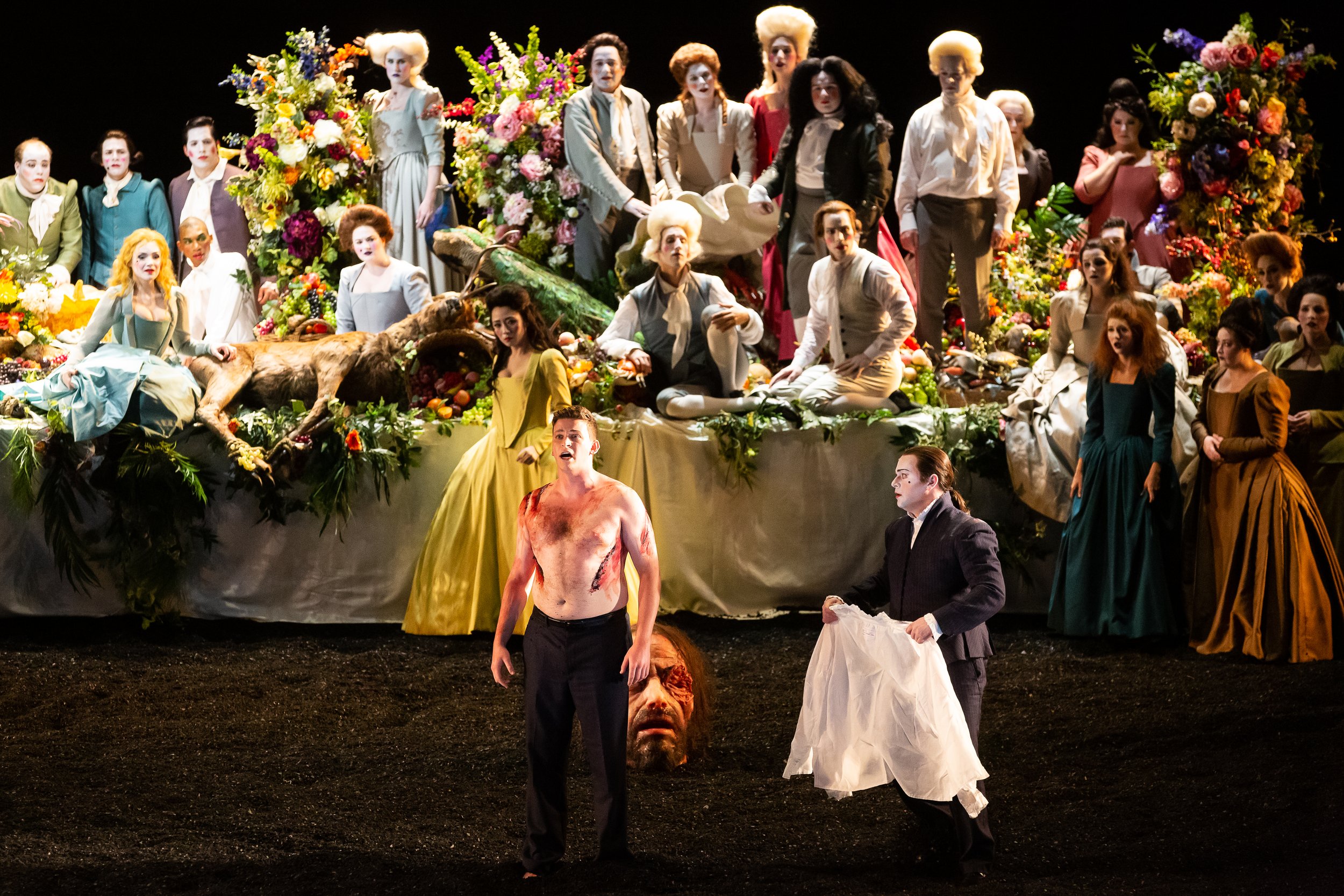
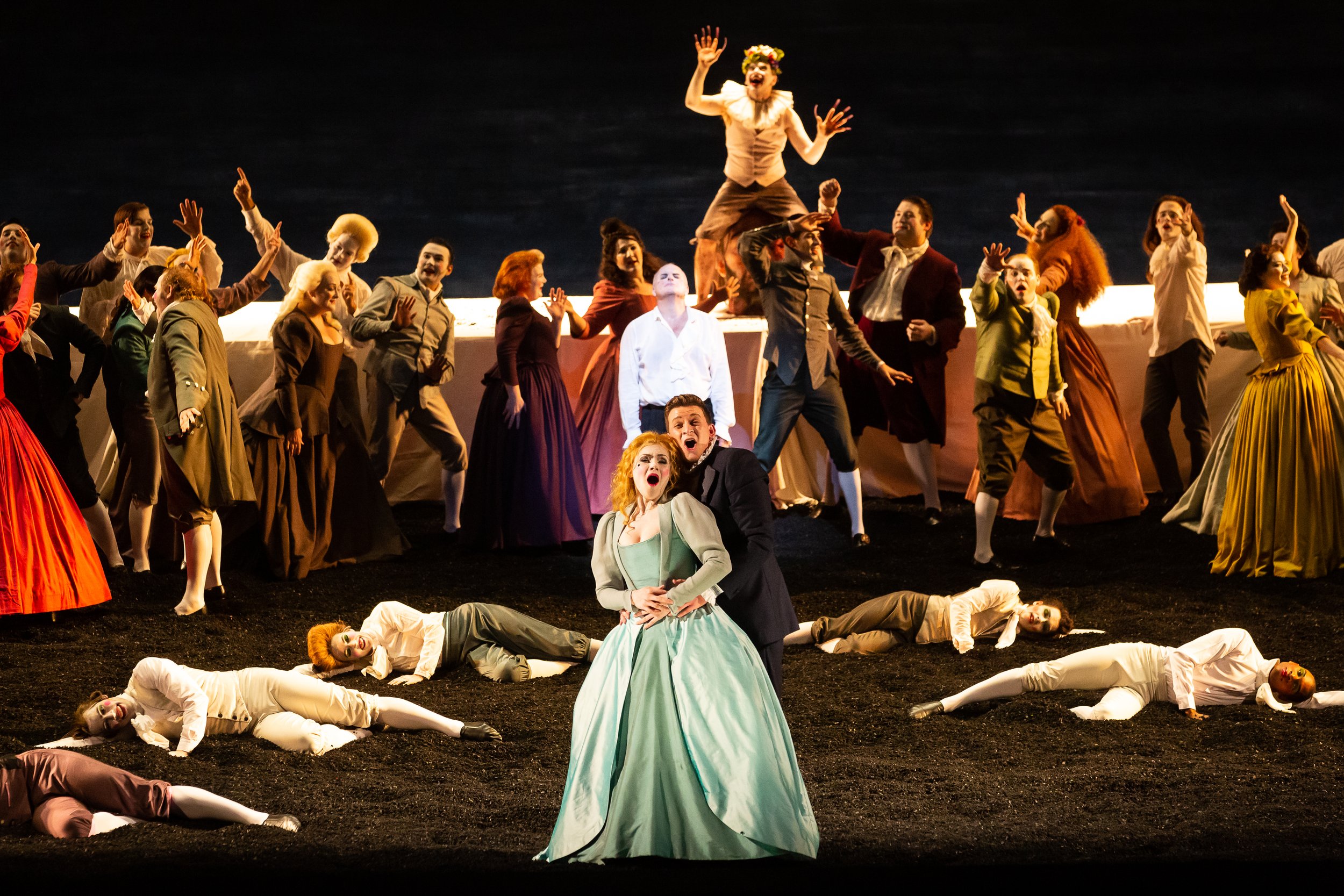
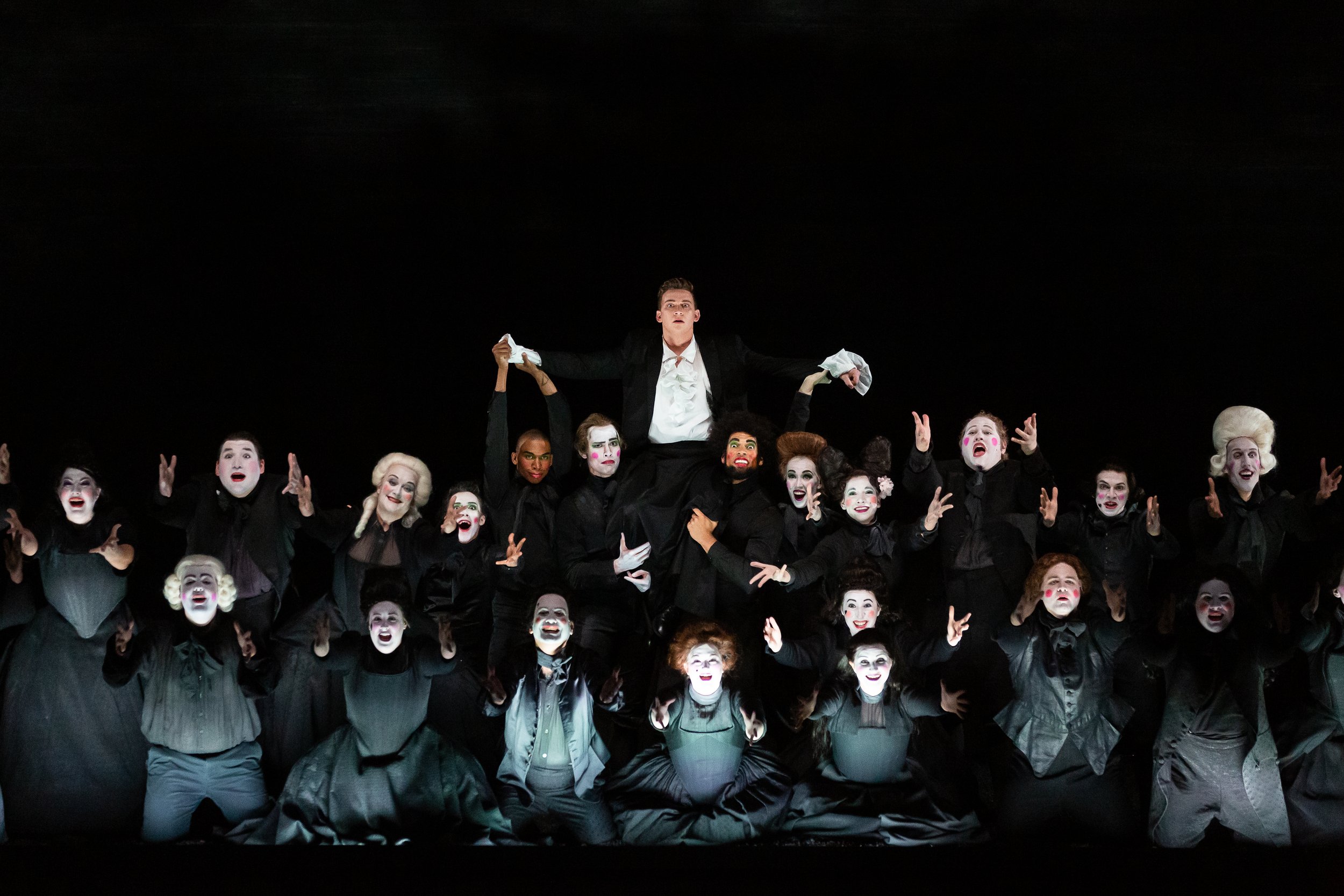
Photo Credit: Lynn Lane | Houston Grand Opera
Cohen describes himself as someone who likes to be very prepared and stick to a plan, but that doesn’t mean he’s not down with some playful experimentation when the occasion arises. In Neil Armfield’s production of Britten’s A Midsummer Night’s Dream at the Adelaide Festival in Australia, the audience were amazed to find Cohen, who was playing Oberon, suspended in midair. He fondly remembered the costume and makeup—”I couldn’t even recognize myself in the mirror!”—and the unique experience of swinging in a basket for the vast majority of the opera, unblighted by moments of motion sickness. Lately, he’s started to do some experimenting with ornaments when he does full performance runs of baroque operas. He admitted, “Improvising ornaments can feel very nerve-racking. I deeply admire singers who improvise all of their ornaments in every performance!”
Striving for excellence and challenging himself to go above and beyond have worked miracles for Cohen. Earlier this month, he came back to the Met for his début, starring as Rosencrantz in Hamlet, the basically sole comic relief in a very tragic story. Our Lead Editor Eugenia Forteza was there, and she described it as a “smashing success.” She observed that the duet nature of his music was some of the most interesting and difficult in the opera. Cohen and Christopher Lowrey, who played Guildenstern, did an incredible job together, not just vocally but also musically, physically, and dramatically. When asked to share about the learning and rehearsal process to create such a special dynamic between these two characters, he said, “A score like this is essentially impossible to prepare on one’s own, so while I had of course studied it very deeply myself—this is my début Met production, after all!—it was when we got into the rehearsal room all together, and could sing together and bounce musical ideas off each other, that it all really started to come to life.” The duo spent a lot of time syncing their physical movements and musical gestures into the “wacky whole” they now get to portray onstage at the Met. Cohen described the creative team as brilliant, open, and supportive, “I’m especially grateful to our maestro Nicholas Carter, director Neil Armfield, and assistant director Denni Sayers for allowing me to bring new ideas to this character, even though this production has been mounted a few times before.”
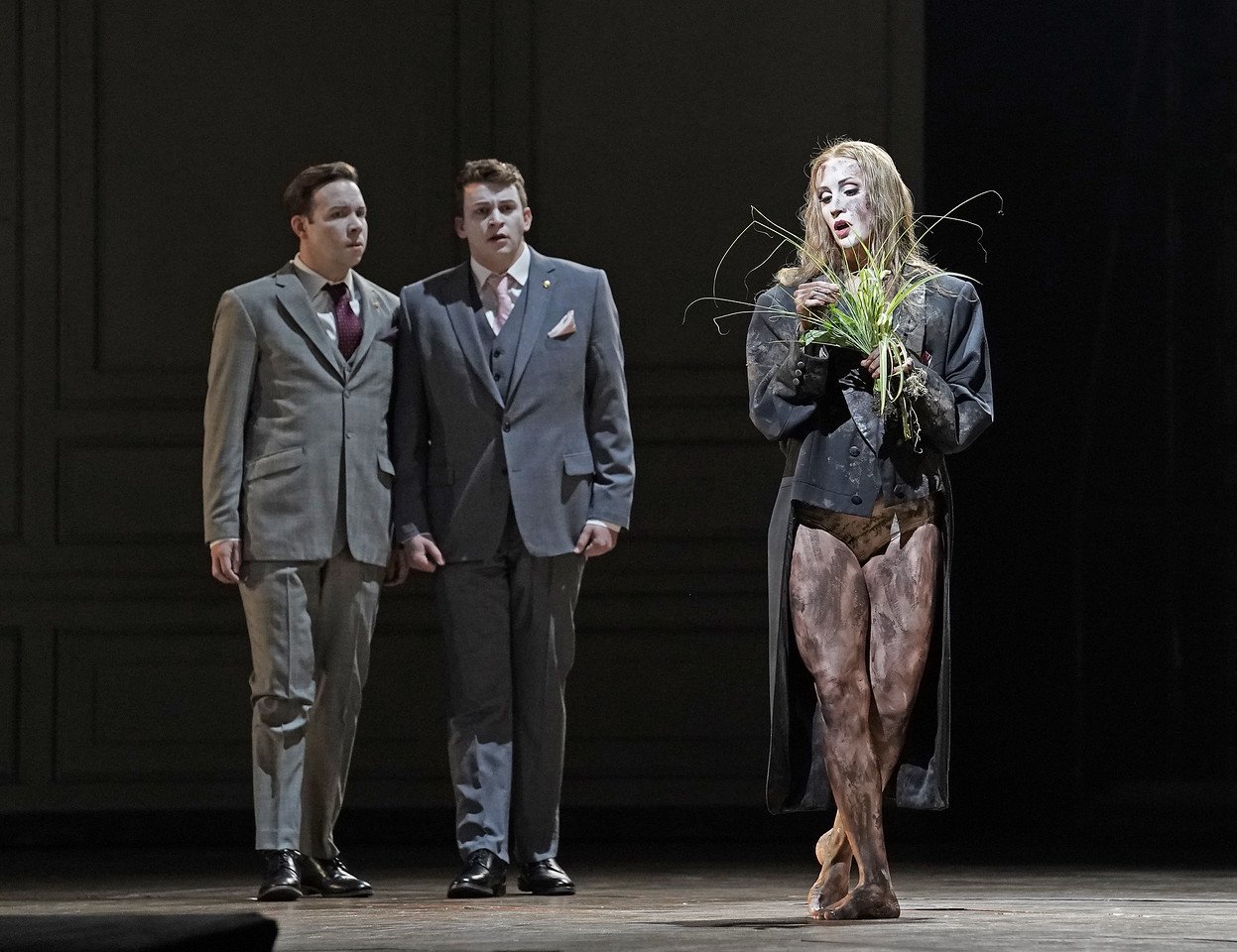

Photo Credit: Karen Almond | Met Opera
Cohen will take his final bow as Rosencrantz in this production on June 9. While this is undoubtedly an important milestone of his career, he is excited to continue this journey with renewed effort and zeal. Next season, apart from débuting at Komische Oper Berlin as David in Handel’s Saul—”my favorite role!”— Cohen will also make his first appearances on the stage of Bayerische Staatsoper and the Glyndebourne Festival, as Endimione in La Callisto and Athamas in a new production of Handel’s Semele, respectively. Next season’s concert engagements will take him to Chicago, Philadelphia, Houston, San Francisco, and around Northern California. Cohen, ever humble and grateful, deeply appreciates all these opportunities to do what he loves and to share beautiful music with his audiences all over. “It’s bringing meaning to people who are in search of something when they come to see a live operatic or musical performance,” he shared in an Alumni POV with Princeton University’s Lewis Center for the Arts, “I mean, how lucky can you be?”
Aryeh Nussbaum Cohen at the Winspear Opera House | The Dallas Opera ( Photo Source: @aryehnc )
Please join us in congratulating Aryeh Nussbaum Cohen on being nominated for The Dallas Opera’s Maria Callas Debut Artist of the Year Award. Voting takes 10 seconds and is open through June 3. Let’s show him some love by voting and sharing! Any support would be deeply appreciated!
- written by Yutong Yang
